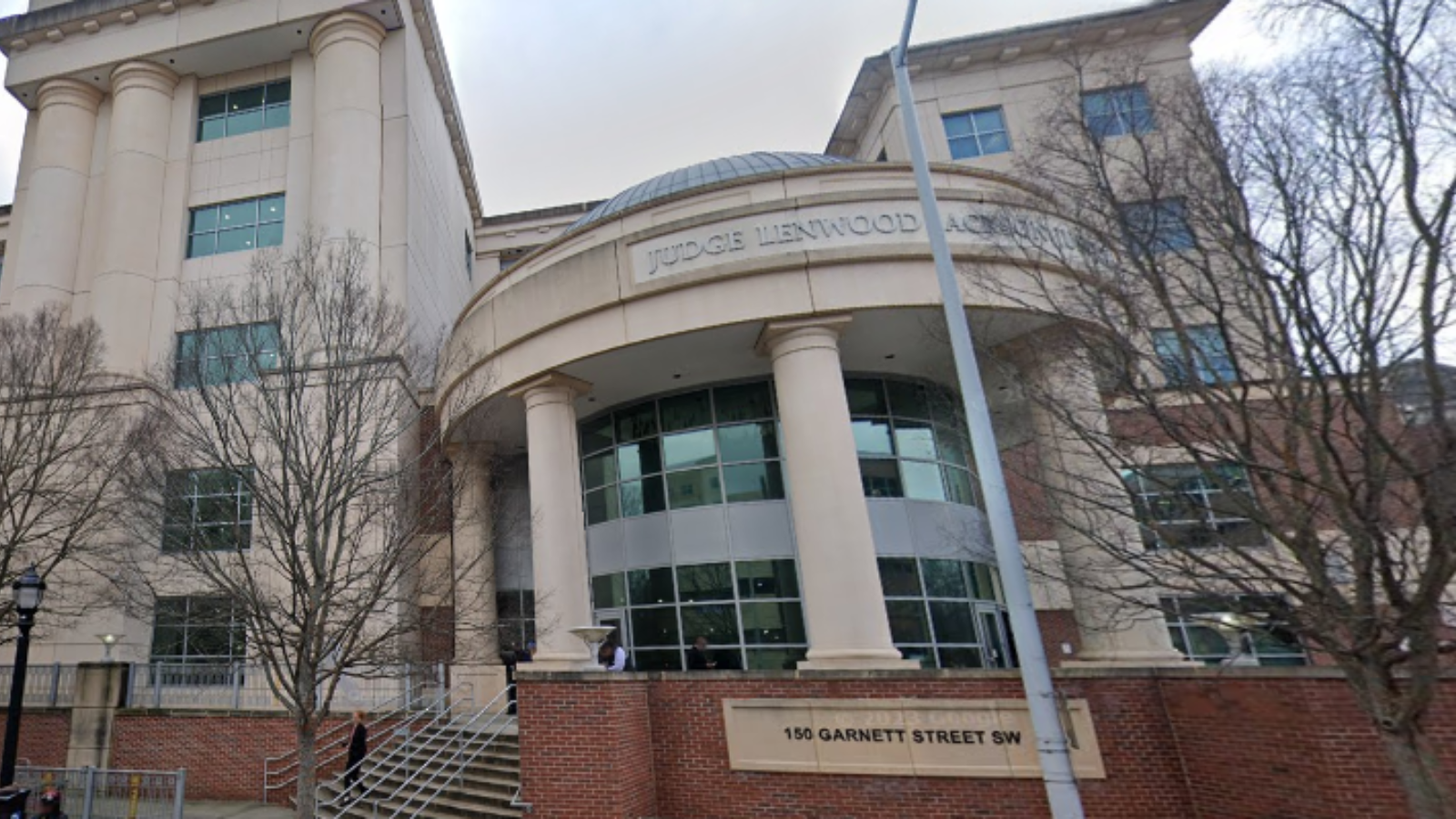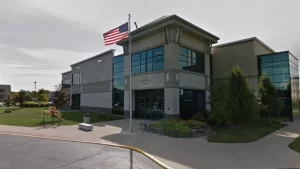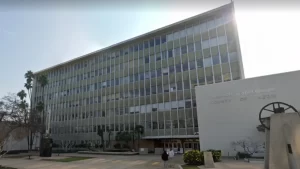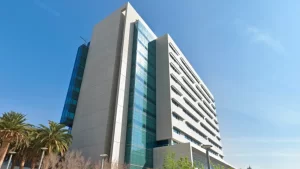Atlanta Municipal Court
Time
Working Hours:
Monday: 7:15 am – 4:30 pm
Tuesday: 7:15 am – 4:30 pm
Wednesday:7:15 am – 4:30 pm
Thursday: 7:15 am – 4:30 pm
Friday: 7:15 am – 4:30 pm
Saturday: Closed
Sunday: Closed
Connect with a Attorney

The Atlanta Municipal Court is a vital part of the city’s justice system, responsible for handling a wide range of cases and serving the residents of Atlanta. This article provides an in-depth look at the history, jurisdiction, structure, procedures, and resources of the court, as well as its impact on the community and future developments.
History of the Atlanta Municipal Court
Founding
Established in 1910, the Atlanta Municipal Court has a long history of serving the citizens of Atlanta, Georgia. Initially created to handle minor offenses and disputes, it has since grown to become an integral part of the city’s legal system.
Expansion
Over the years, the court has expanded its jurisdiction and scope to include a broad range of cases. Today, the Atlanta Municipal Court is one of the busiest courts in the state of Georgia, handling thousands of cases each year.
Jurisdiction and Scope
Criminal offenses
The Atlanta Municipal Court has jurisdiction over many misdemeanor criminal offenses, including shoplifting, disorderly conduct, and simple battery. Cases involving more serious offenses, such as felonies, are typically handled by higher courts, like the State or Superior Court.
Traffic violations
One of the primary responsibilities of the Atlanta Municipal Court is to handle traffic violation and traffic law. These cases can range from minor offenses like traffic ticket, speeding to more serious infractions like driving under the influence (DUI).
Ordinance violations
The court also has jurisdiction over violations of city ordinances, such as noise complaints, animal control issues, and building code violations. These cases aim to ensure compliance with local laws and maintain public order.
Court Structure and Personnel
Judges
The Atlanta Municipal Court is presided over by a Chief Judge and several Associate Judges, who are appointed by the Mayor and confirmed by the City Council. These judges are responsible for overseeing all court proceedings and making decisions on cases within their jurisdiction.
Support staff
In addition to judges, the court employs a variety of support staff, including clerks, bailiffs, and court reporters, who help ensure the efficient operation of the court system.
Court Procedures
Arraignment
When a defendant is charged with a crime in court of atlanta, they must attend an arraignment hearing at the Atlanta Municipal Court. During this hearing, the charges are formally presented, and the defendant enters a plea of guilty, not guilty, or nolo contendere (no contest).
Pre-trial hearings
Before a case goes to trial, there may be pre-trial hearings to address issues such as evidence, witness testimony, plead guilty and potential plea agreements. These hearings are an essential part of the legal process in court of atlanta, as they help to ensure a fair and efficient trial.
Trials
If a case proceeds to trial, the Atlanta georgia Municipal Court conducts either bench trials, where the judge decides the outcome, or jury trials, where a group of citizens determines the verdict. Both types of trials aim to provide a fair and impartial resolution to the case at hand.
Alternative Sentencing Programs
Community Court
The Atlanta ga Municipal Court offers a Community Court program, which focuses on restorative justice and community service for non-violent, first-time offenders. This program aims to address the root causes of criminal behavior and reduce recidivism.
Pre-Trial Diversion
Another alternative sentencing option is the Pre-Trial Diversion program, which provides eligible defendants with an opportunity to avoid a criminal conviction by completing specific requirements, such as counseling, community service, or educational programs.
Fines and Fees
Payment methods
The Atlanta Municipal Court accepts various payment methods for fines and fees, including cash, checks, money orders, pay online and credit cards. Some fees can also be paid online through the court’s website and ticket online portal.
Failure to pay
If a defendant fails to pay their fines or fees, the court may impose additional penalties, such as driver’s license suspension, wage garnishment, or even incarceration.
Navigating the Court System
Finding your court date
Court dates can be found on the citation or summons issued to the defendant, or by contacting the court clerk’s office. It is essential to attend all court appearances to avoid further legal complications.
Hiring an attorney
While some defendants choose to represent themselves, it is often beneficial to hire an attorney experienced in navigating the Atlanta ga Municipal Court system. Legal representation can help ensure that your rights are protected and increase the likelihood of a favorable outcome in your case.
Court Resources
Legal aid
For individuals who cannot afford an attorney, the municipal court of atlanta docket provides access to legal aid services. These organizations offer free or low-cost legal assistance to eligible individuals, helping to ensure equal access to justice for all.
Online services
The court’s website offers various online services, such as paying fines, viewing court dockets, and accessing forms and resources. These services aim to make the court system more accessible and user-friendly for the public.
Notable Cases
Over the years, the Atlanta Municipal Court has presided over numerous high-profile cases, often drawing significant media attention. These cases have helped to shape the court’s reputation as a fair and impartial institution, dedicated to serving the people of Atlanta.
Impact on the Community
The Atlanta Municipal Court and atlanta traffic court plays a crucial role in maintaining public order and promoting a safe, vibrant community. By handling a wide range of cases, from minor offenses to traffic charges more serious crimes, the court helps to ensure that justice is served and that the city remains a desirable place to live, work, and visit.
Future Developments
As the city of Atlanta continues to grow and evolve, the atlanta traffic court will likely face new challenges and opportunities. Ongoing efforts to modernize the court system, increase access to justice, and develop innovative solutions to address crime and recidivism will help to shape the court’s future and its impact on the community.
Visiting the Atlanta Municipal Court
Location and accessibility
The Atlanta Municipal Court is located at 150 Garnett Street SW, Atlanta, GA 30303. The courthouse is easily accessible via public transportation and offers parking options for those arriving by car.
Hours of operation
The court is open Monday through Friday, with specific hours for different departments and services. It is essential to check the court’s website or contact the court directly for accurate hours of operation.
Conclusion
The municipal court of atlanta is an essential institution that plays a significant role in the city’s justice system. By handling a wide variety of cases, from traffic violations to criminal offenses, the court ensures that justice is served and helps maintain a safe and orderly community. With its dedicated judges and staff, alternative sentencing programs, and ongoing efforts to modernize and improve, the municipal courts remains a vital and evolving part of the city of Atlanta.
FAQs
- What types of cases does the municipal court of atlanta handle?
The court handles various cases, including misdemeanor criminal offenses, traffic violations, and city ordinance violations.
- How do I find out when my court date is?
You can find your court date from traffic ticket lawyer on the citation or summons you received or by contacting the court clerk’s office.
- Do I need an attorney for my case in the municipal court of atlanta?
While it is not required to have an attorney, hiring one can be beneficial in ensuring your rights are protected and increasing the likelihood of a favorable outcome.
- What happens if I fail to pay my fines and fees to the municipal court of atlanta?
Failure to pay fines and fees may result in additional penalties, such as driver’s license suspension, wage garnishment, or incarceration.
- Are there any alternative sentencing options available through the municipal court of atlanta?
Yes, the court offers alternative sentencing programs like the Community Court and Pre-Trial Diversion programs for eligible defendants. These programs focus on restorative justice, community service, and addressing the root causes of criminal behavior.







